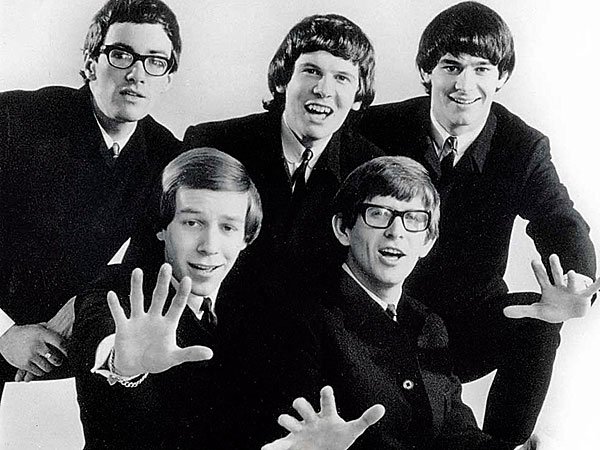Debut dominance to fading fans: The Zombies
When rock ‘n’ roll was in its baby stages in Britain, five schoolboys from Hertfordshire were prepped to turn the genre’s first steps into strides.
Formed in St Albans, the English teens pondered a stand-out, original band name, changing from “the Mustangs” to “The Zombies” in 1961 (despite humorously not fully understanding the image):
"Every young band wants an original name. We were just in our teens. We tried the Mustangs. To be honest, I didn’t really know what a zombie was" (ref)
Formed by Rod Argent, Paul Atkinson, Hugh Grundy, Colin Blunstone and Paul Arnold, the latter was soon replaced by Chris White, which formalized the original formation. Performing as a school band around the local area for several years, it was 1964 when the band became poised for the official start of their short-lived success. Signing a contract with Decca Records in May, debut single “She’s not there” was released in July, peaking at no.12 in the UK charts - certainly not a position to be snubbed. Though a strong introduction to an exciting young act, the band would not see another Top 40 position for the rest of their career, which today remains a surprising fact, even for classic fans familiar with their discography. However, as the British Invasion was seeping into the states, the debut climbed to a no.2 spot in the US by Christmas, eventually earning gold disc status and growing to become somewhat of a staple track of the 60s, if we’re looking back from the current decade.
Offering a unique blend of rock, pop and rhythm ‘n, blues, The Zombies were a tasty meal that fitted Britain’s industry cookbook of the mid-60s: Charming vocal harmonies, textural keyboard work, thoughtful songwriting and touches of psychedelia. Looking to build momentum in the US after the success of their debut, 1965 saw the band release single, “Tell Her No”, which peaked at no.6 on the Billboard Hot 100. However, the B-side of the single ( “Leave Me Be”, recorded at Ryemuse Studios in London) was commercially, a disappointing flop for the five-piece, and still appears to remain only a cult-favourite amongst fans today. Though appreciating their American success, the young men were struggling to fully crack the UK market. Later tracks, “She’s Coming Home”, “Whenever You’re Ready” and “Is This The Dream” all failed to draw the same reception as their debut, possibly due to changing musical trends, intense competition and difficulties in their creative direction. Or, the Achilles heel that unites bands of the past and present: Money.
Debut album, “Begin Here” (released as “The Zombies” in the US) landed in April 1965, but in a singles-dominated market, was not the highly anticipated release the band had hoped for. Releasing a string of singles across the following year, it was 1967 when a spark looked to ignite a largely dull career thus far. Signing a new contract with CBS Records, the band began recording April 1968 album, “Odessey and Oracle” between EMI (now Abbey Road Studios) and Olympic Studios. Using a mellotron to fill out their arrangements, supposedly left behind after recording sessions for “Seargant’s Pepper’s Lonely Hearts Club Band”(ref), the album truly was a “we’ll work with what we got” driven project. Despite the image of a new leaf being turned for the band, the short deadline and tight budget of the album brewed a lot of tension, and particular tempers flared up during the recording of surprise hit, “Time of the Season”.
Though a hallmark of their discography and a merit of the bands’ musicianship, the album as a whole was received rather indifferently. The shining debut stars were no longer in demand, and their poor status in the UK market fizzled more. The band had already quietly split four months prior to the album’s release, marking the conclusion an even more disheartening one.
Though too-little-too late, belief in the band and praise for their final offering has grown since their separation, with “Odessey and Oracle” becoming an acclaimed album of the 60s and a significant release in music history. The Zombies short-lived journey remains an interesting and influential one, and dubbing them “underdogs of the British Invasion” may be the most fitting phrase to sum-up the ambitious trailblazers.
Cobra Promotions is proudly affiliated with DROP ROCKET





